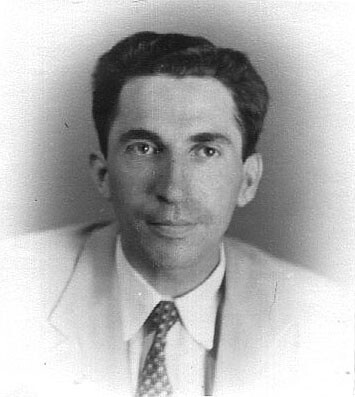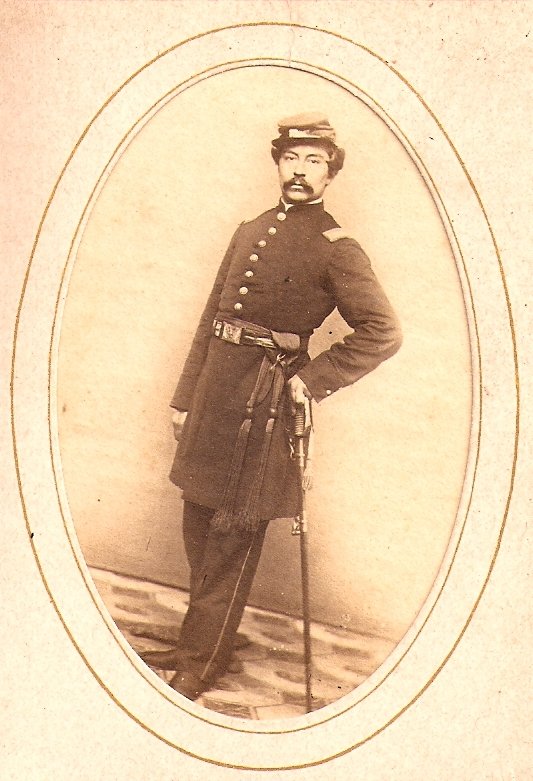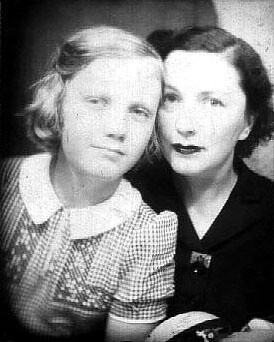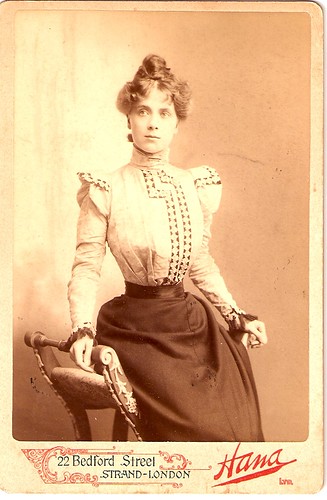
Joseph Francis Periale, c. 1946
My father used to tease my mother that when her British ancestors were “still painted blue and swinging from the trees” his Roman ones were “conquering and ruling the world.” This could bring on laughs or arguments, depending on the general mood of the day. But I can still feel split down the middle, a living culture clash. There are certain days when I’m all Italian: rich, exotic, earthy; and days when my Anglo-amalgam of British, Scottish, Irish, Welsh and a smidgen of Dutch will flatten others in its wake. I am trying to sort through the various bits and pieces of anecdotes and histories to unite those differing factions within myself.
There are so many stories to tell about my family. Should I try to go as far back as I can—which is pretty far—on my mother’s side? My mother says that we can trace her ancestors back to Alfred the Great and William the Conqueror. Unfortunately there is a gap of about one hundred years missing in the 15th century, which always gives me pause.
Or should I just tell what I think are the most important stories?

William Beverige Cassels, c. 1864
I guess I should start at the point where all of this came into sharp focus for me, in April 1993, when my father died. Grand’mére ( my mother’s mother, Mariette van Steenwyk Cassels Winship Polk Land) died three months later, so in a short space of time two of the most powerful people in my life and lifelong combatants-of-sorts were gone. I suddenly saw myself as a link in an incredibly long and wonderful chain. I wanted to continue this chain in a forward direction. A feeling of ancestry came into sharpest focus with Grand’mére’s death. Maybe that had something to do with her being the link to the Earl of Cassillis (and Clan Kennedy) and those missing one hundred years. But as I was helping my mother sort through Grand’mére's life and catalog her possessions, I saw to what extent she had gone to preserve and protect her family.
There were numerous wills, different versions, dated from 1968 on, all worded in the interest of my brother and me. There were photographs, letters and jewelry, all preserved from the Victorian era and before. There was a genuine Civil War medal, worn by a young drummer boy in a Wisconsin regiment. My mother remembers playing on his drum as a child. Unfortunately no one is sure what happened to the drum in later years.

Mary Elizabeth Winship & Mariette van Steenwyk Cassels
My mother, Mary Elizabeth Winship, was Mariette’s only child. My grandmother was a single parent in the late thirties. There weren’t countless pop-culture examples as support for that lifestyle then. My grandfather, Lionel William Bretherton Winship, called Billy, was British, but lived, worked and was born in Paris. He met my grandmother while he was working for Standard Oil in Paris and she was attending interior design school at Parsons School of Design.
There is a Winship family crest. It shows an arm holding a scimitar rising out of a five-pointed crown. This has been interpreted to signify: the five-pointed crown denotes an earl (Earl of Aydon, Aydon Castle). The scimitar means that someone in the family fought in the Crusades.
In Corbridge, Northumberland there is a church, St. Andrew's Parish Church, where is buried many of Billy's ancestors, all named Lionel William Winship. It is said that each Winship gave his son the name Lionel William as far back as the 11th century. Billy’s father, also named Lionel William Winship was an engineer and inventor. He owned a company in France called Le Treve, (translated: the club of playing cards.) Lionel William was quite an adventurer. He went on an expedition to the North Pole. He also walked across Africa on another occasion. When Billy was asked why his father had walked across the continent of Africa his reply was, of course, “To get to the other side!” But Billy’s father died in 1913 (possibly from fumes and gases leaked below ground), while working on the construction of the London tube system when the boy was only seven years old, leaving him to be raised by an over-protective and doting mother, Mary Vaughan Bretherton, who wrote his name on the backs of photographs as “Billee.”

Mary Vaughan Bretherton
Billy was sent to public school in England, where he was called “Little Frog,” due to his French accent. Once, when he was leaning over a radiator, reading a book, some tough pushed his head down against it as he walked by, burning him. In later years he grew a moustache to hide the resulting scar on his upper lip.

Lionel William "Billy" Winship
Billy was dashing and romantic. He joined the RAF, but had to leave due to his excessive drinking. He later joined the Royal Marines and was honorably discharged as a major.
Mariette left him in 1939, ostensibly on a visit back home to her parents. My mother, a child of almost six at the time, had been told that they were fleeing the outbreak of the Second World War. But Grand’mére told me stories late in her life of having to deal with his alcoholism, which is truly why she had to leave. And also that he was the great love of her life.
![Reblog this post [with Zemanta]](http://img.zemanta.com/reblog_e.png?x-id=16c05566-0db5-4c8d-8821-f345b478e3ba)
Comments
Post a Comment